iPhone 7 Plus review: much more than a subtle redesign
Dual camera, more storage, and larger battery make this the ultimate iPhone

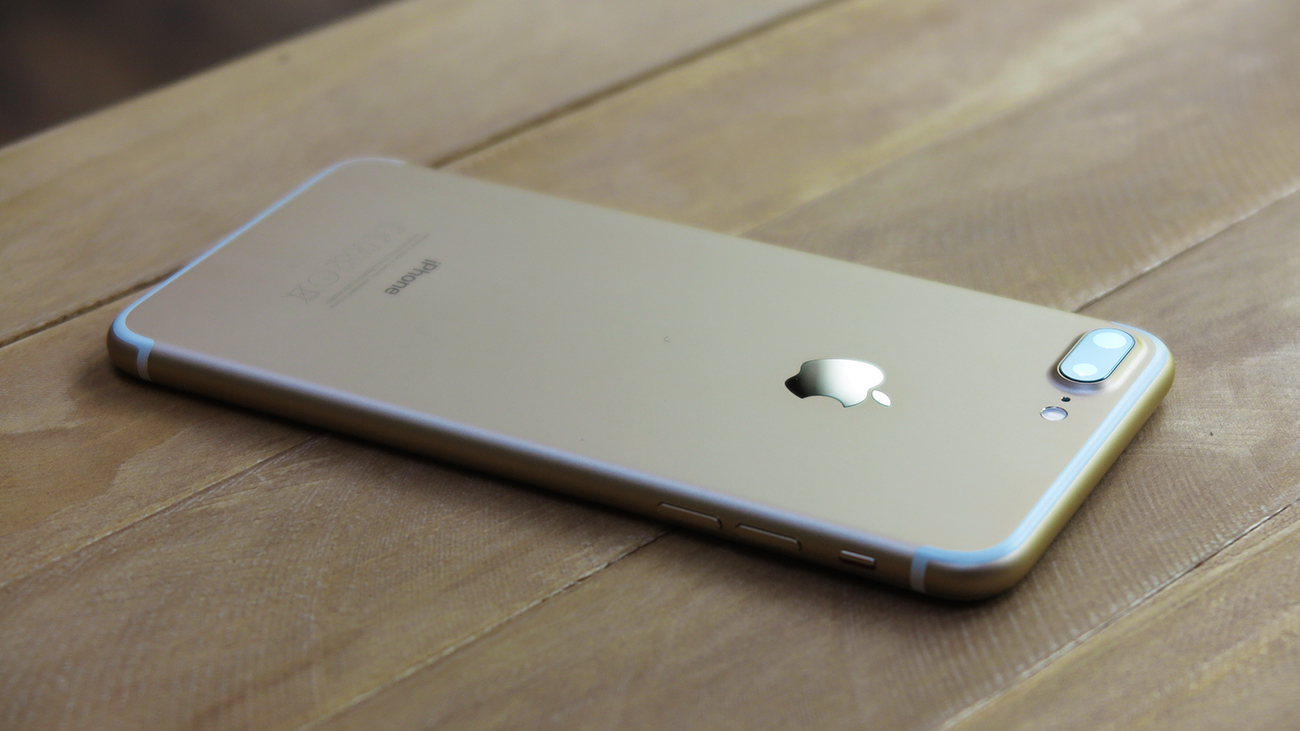
-
+
Great design and dual camera
-
+
Improved battery
-
+
Water resistance
-
-
It’s massive
-
-
Iterative design
-
-
Screen resolution
Why you can trust T3

This is the big one, both literally and figuratively - say hello to the iPhone 7 Plus.
We're still in the process of reviewing our iPhone 7 Plus and we'll be updating this article over the next few days once we've spent more time with the handset. We've also got the standard iPhone 7 too, which we're reviewing separately, make sure you check that out.
So why is this the big one? Well, it has a large 5.5-inch screen, for a start.
It's also the first iPhone to bear the “7” moniker, this isn't just an “S” update, and while new numbers usually bring new designs, the iPhone 7 appears to be laying the groundwork for something much more important (which we'll get onto in due course).
Both iPhone 7 models are now waterproof, have more storage, and don't feature a headphone jack, but the iPhone 7 Plus differentiates itself with a dual camera.
Should you get the iPhone 7 Plus? Read on to find out...
Design
The iPhone 7 measures 158.2 x 77.9 x 7.3 mm. That really is massive. The Samsung Galaxy Note 7, for comparison, is 153.5 x 73.9 x 7.9 mm, despite featuring a screen which is 0.2-inches larger than the iPhone (5.7 vs 5.5-inches).
This is down to the large bezels around the 5.5-inch screen. But hey, at least the iPhone 7 Plus doesn't explode, right?
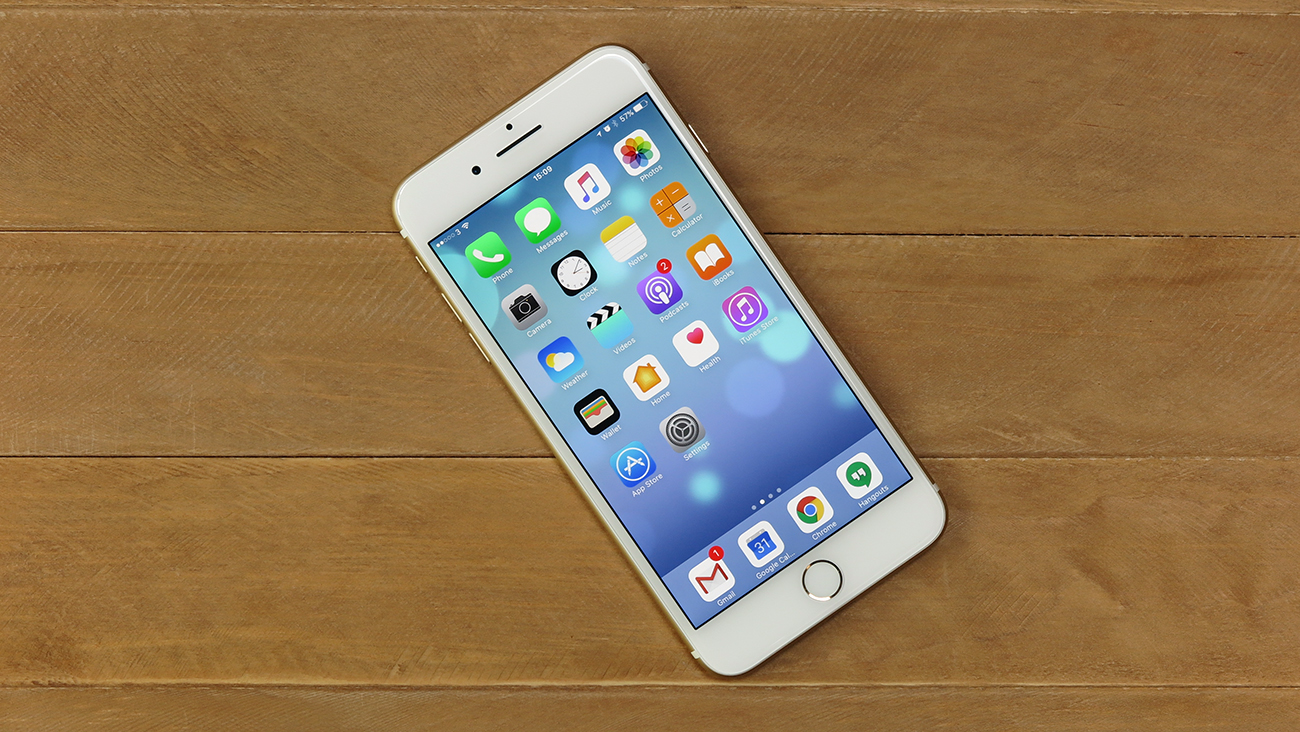
As we've already mentioned, the iPhone 7's design isn't a massive departure from the iPhone 6 aesthetic. You can see this two different ways:
1. The iPhone 6 was the best-looking smartphone around and has been for years. It's essentially peak Apple design. Jony Ive can retire, and Apple should never change the iPhone again.
2. The iPhone 6 looked great, but reusing the same design for three years feels stagnant. The iPhone 7 looks overly familiar, and tired as a result.
We can see the argument for both points of view, but really, the design would not put us off buying this smartphone - we think it looks great.
There are a few, small changes which become apparent when you flip the device over.
The antenna lines are now less prominent - instead of dissecting the rear panel, the lines now flow around the edge. They're almost non-existent on the Jet Black model.
The camera lens still protrudes from the rear casing, but the aluminium is moulded around it. This makes it appear more organic and harmonious with the rest of the phone, less like an afterthought.
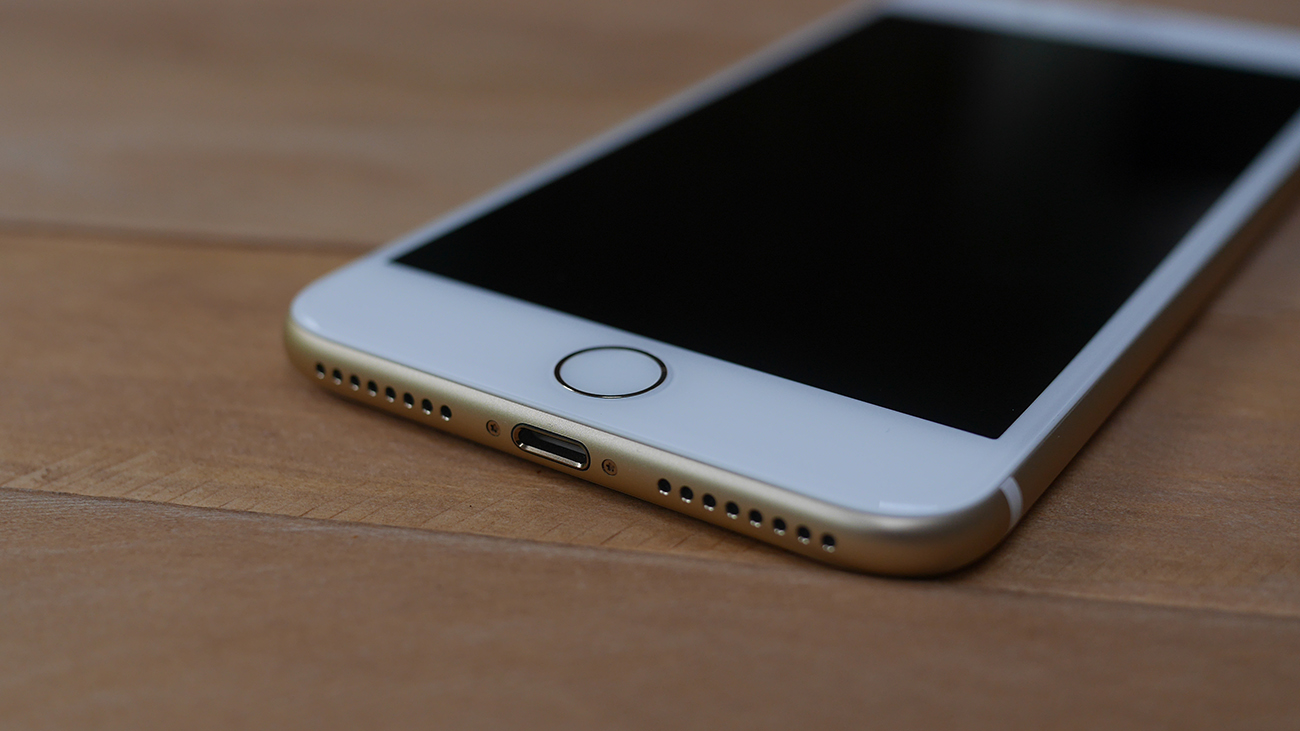
On the bottom of the iPhone, there's no headphone jack (but you already knew that, didn't you?). Instead, it's been replaced by a faux speaker grill - for symmetry, we're guessing.
It is worth noting that the iPhone 7 Plus now feature stereo speakers for music and audio - one on the top of the screen and one underneath. They're both certainly very loud, big improvements over previous iPhones, but lack bass for proper music listening. They do create a pleasingly wide soundstage.
What can we say about the loss of the 3.5mm headphone jack? You've probably already made up your mind whether this is a dealbreaker for you.
It didn't affect us, we've been using Bluetooth headphones for the last year, there are some excellent wireless cans around now, but if you have a wired pair which you won't give up there is the adapter free in the box. That's obviously not ideal, as you can't charge and listen to music at the same time. If you think that's going to be a major problem, this phone probably isn't for you.
- These are the best Bluetooth headphones
The front of the phone is dominated by the large 5.5-inch screen and Touch ID home button.
While it looks identical, the classic home button has received a small redesign as well. It's now capacitive touch, rather than a mechanical button.
This transition feels completely natural - behind the button is a “Taptic Engine”, similar to the subtle vibration motor found in the Apple Watch. This creates a clicking sensation, but crucially, nothing moves. The Taptic Engine works incredibly well, it's like physical skeuomorphism - try pressing the button with paper in between it and your finger, you'll soon realise how effective it is.
Why change the Home button? Well for starters, there are now fewer parts to go wrong. But people are suggesting this is a stepping stone - eventually Apple will remove the home button completely.
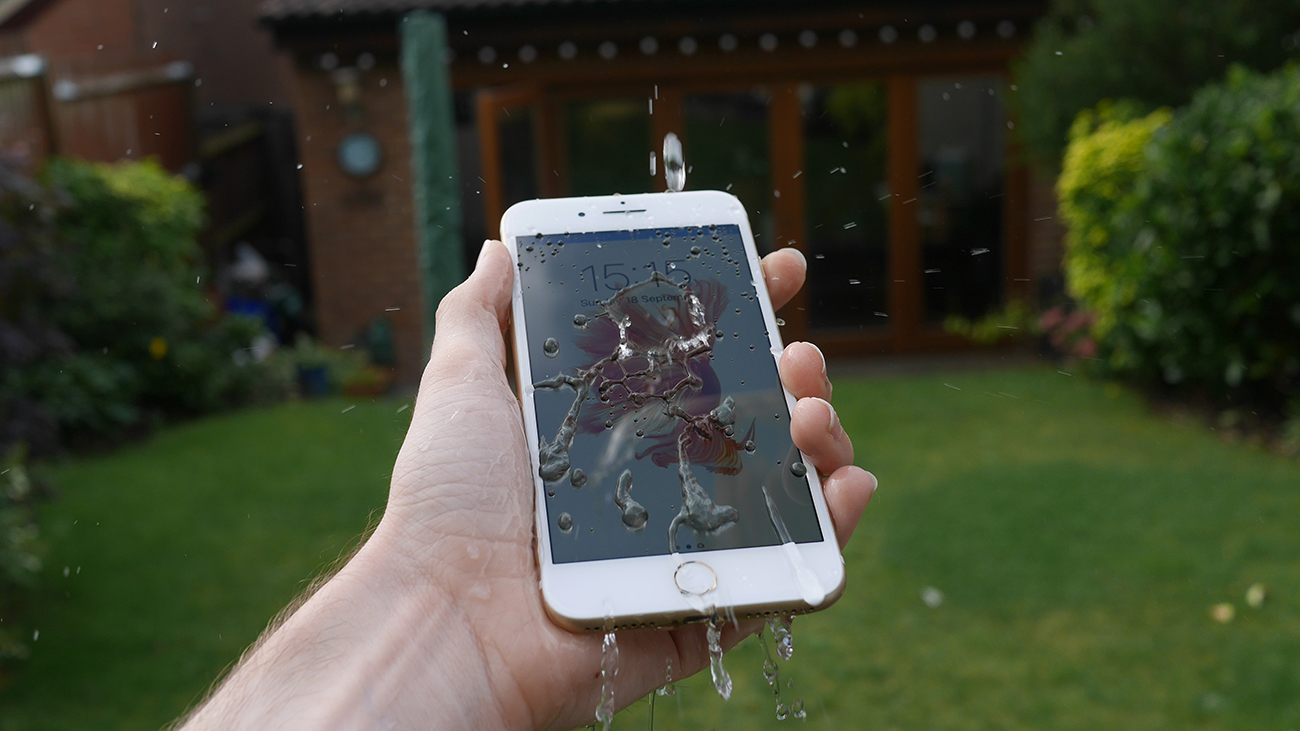
It's been a long time coming, but the iPhone 7 Plus is finally water resistant. Officially rated at IP67, that means it should survive in 1 metre of water for up to 30 minutes. Obviously, Apple is catching up here, but it's great to see an iPhone officially certified.
And finally on design - there are new colours available. The iPhone 7 Plus now comes in Silver, Gold, Rose Gold, Black and Jet Black. Jet Black is really shiny, it also looks really easy to scratch, but we can't verify that.
Screen
The iPhone 7 Plus features a 5.5-inch 1080p IPS LCD display which has a pixel density of 401 PPI.
That's the same number of pixels as the iPhone 6S Plus, and quite surprising, as we were expecting a bump in resolution considering the Note 7, and some other rivals, now pack QHD screens (518 PPI for the Note).
If you hold them together side by side the difference is noticeable, but in reality, you won't be disappointed by the iPhone 7 Plus's resolution - it's plenty sharp enough.
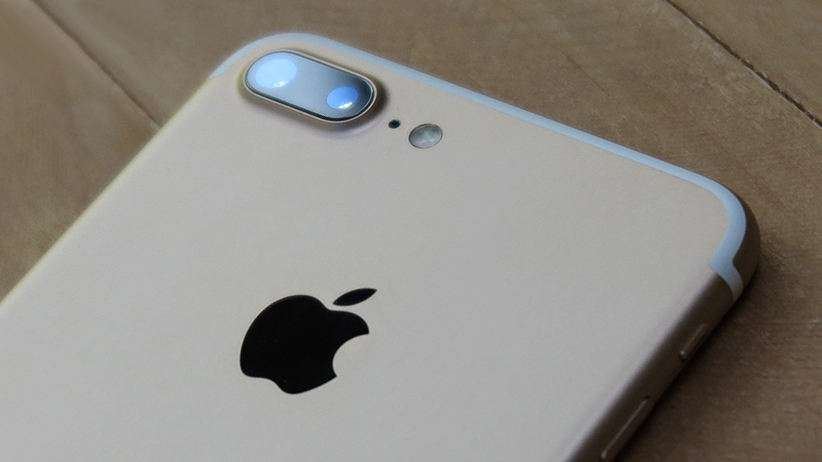
What Apple has focused on improving is the brightness and colour representation.
The iPhone 7's display is now 25-percent brighter, with a 'cinema-standard' colour gamut. Obviously, they're not massive changes, but these small updates make the screen easier on the eyes (especially when it's sunny).
3D Touch is back - where the display senses the amount of pressure you're exerting on it. This opens up contextual menus and shortcuts. Quite a few third party apps make use of this feature, but we didn't really find ourselves using it often. It's very cool for Live Photos, however.
Performance and Battery Life
The iPhone 7 comes packing Apple's new and speedy A10 Fusion quad-core processor. Apple claims it's 120x times faster than the original iPhone, and gives a 40-percent performance boost over the A9 chip in the previous iPhone.
The A10 Fusion features two high-performance cores, and two low-performance cores, with the ability to switch between them in order to achieve an optimum balance of performance and battery life.
In reality, this equals a blindingly fast smartphone. Tearing through different apps, playing music, watching video, and checking emails are all uninterrupted by the hardware. What's super impressive is how instantly apps are ready when multitasking between numerous jobs.
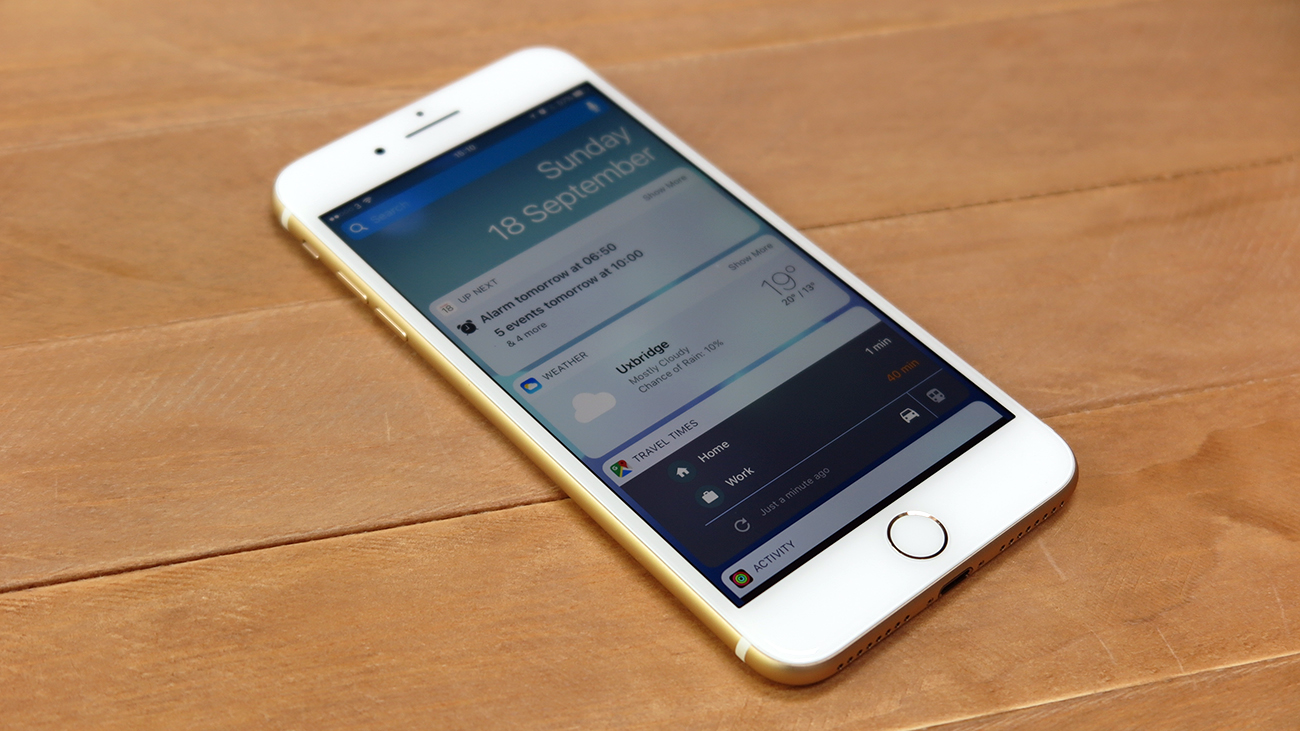
Apple also upgraded the storage, now the iPhone 7 Plus comes with 32GB, 128GB and 256GB options. That's a big bonus, as 16GB was simply not enough.
Did the battery also manage last a magical three days? Unfortunately not.
One of the benefits to owning such a large smartphone is that there's more space for a larger battery. The iPhone 7 Plus features a 2,900 mAh unit.
Apple claims the iPhone 7 Plus will last an extra one hours over the iPhone 6S Plus.
We found you're going to need to charge it every day, just like most other smartphones - but you won't need to worry if you decide to have a few drinks after work - the iPhone 7 Plus will see you through even the longest days (depending on usage, obviously).
iOS 10
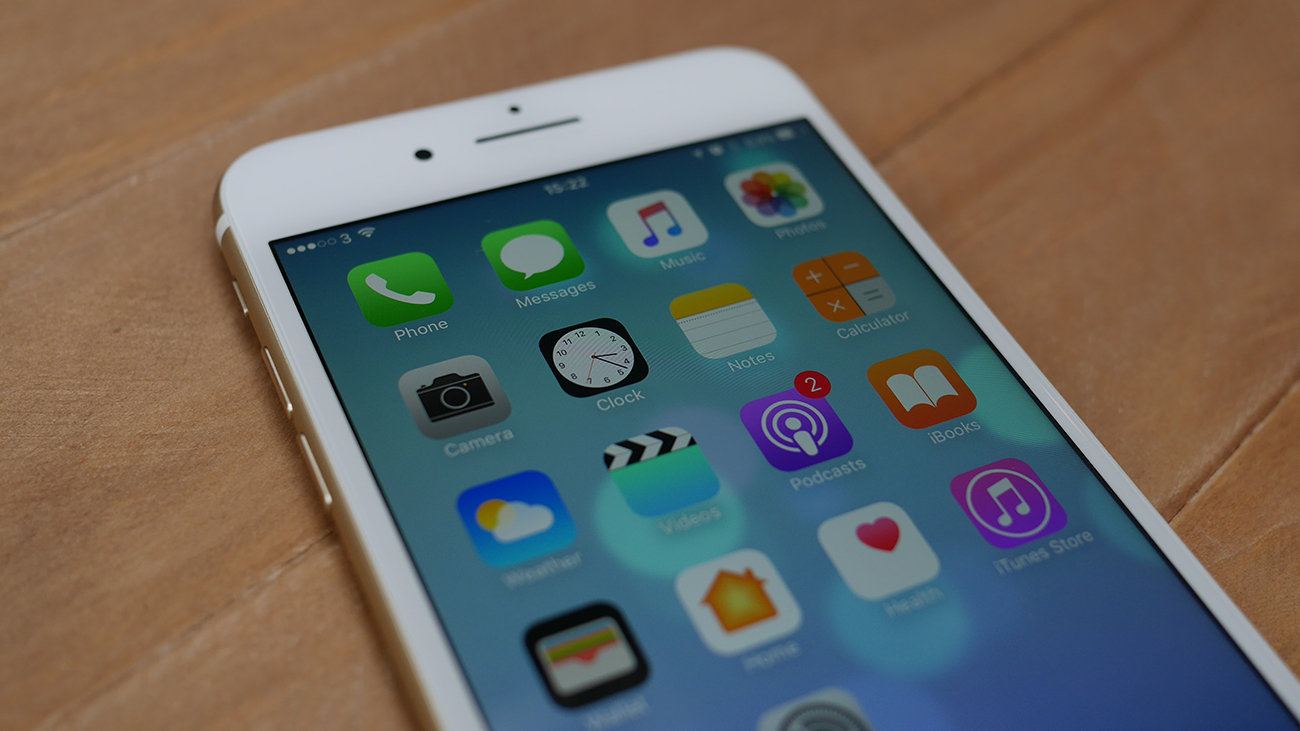
iOS 10 is a great software update, it's simple, it's slick, key apps such as iMessage, Music and Photos have received an overhaul. We're finding it a pleasure to use.
Make sure you check out the 10 New features we love in Apple's new mobile OS.
Camera
Ah, the camera - now this is where it gets interesting.
The iPhone 7 Plus sets itself apart from the standard iPhone 7 with three things - larger screen, bigger battery, and more advanced camera technology.
Apple has put a brand new dual camera in the iPhone 7 Plus. The system uses two 12-megapixel sensors, one with a wide-angle 28mm f/1.8 lens, the other a telephoto 56mm f/2.8 lens. Both feature optical image stabilisation.
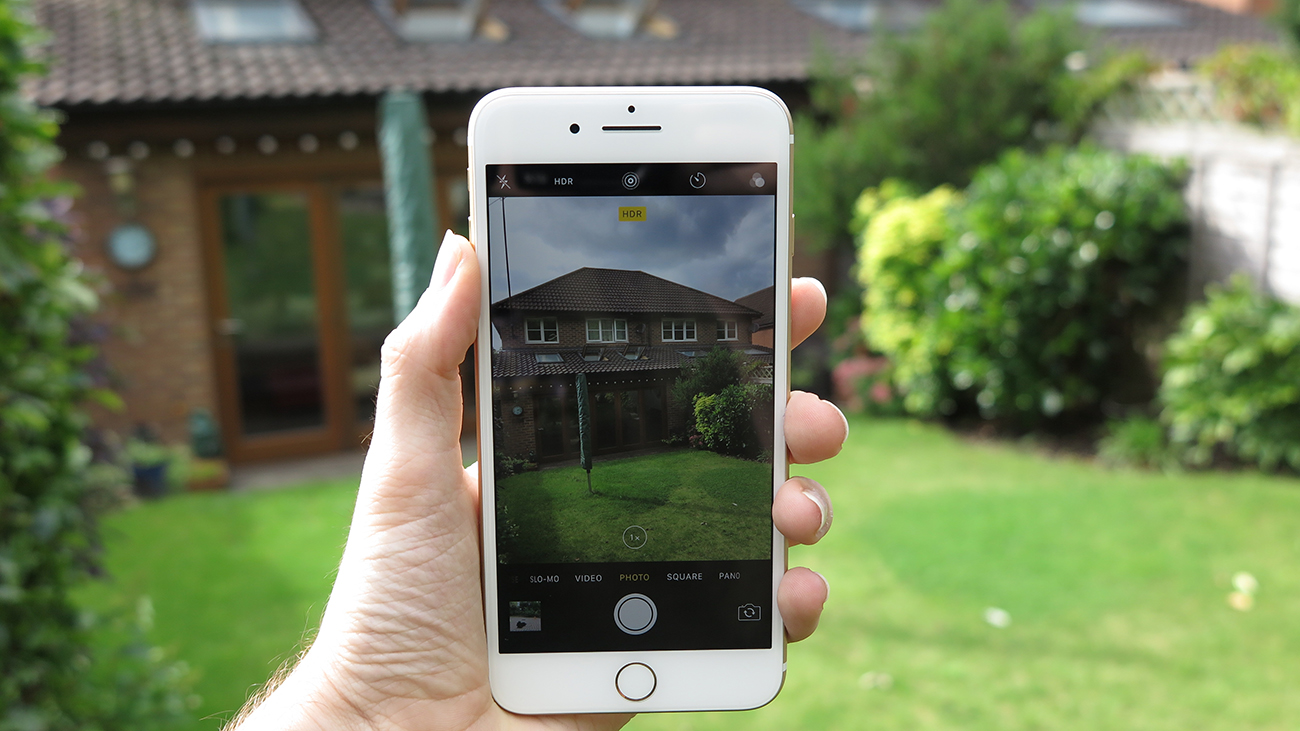
There are several reasons for this. The most important is that it allows for true, optical, 2x optical zoom (rather than digital zoom, which should never be used). We found ourselves using 2x zoom quite often, with mostly pleasing results. Although, it would appear that images taken with the wide angle lens are sharper.
The dual camera system can also be used to create a shallow depth of field effect, blurring the background of images to make the subject 'pop'. We've tested this feature out in Beta mode, and it does a pretty good job. It does currently look a little artificial (because it is), but we expect this to improve with software updates down the line.
Both lenses have a redesigned six-element structure, and the wide angle module has a f/1.8 aperture. This allows more light onto the sensor, and creates better lower light photos.
This works really well, whereas the iPhone has always been weak in this area, the iPhone 7 Plus is excellent in the dark.
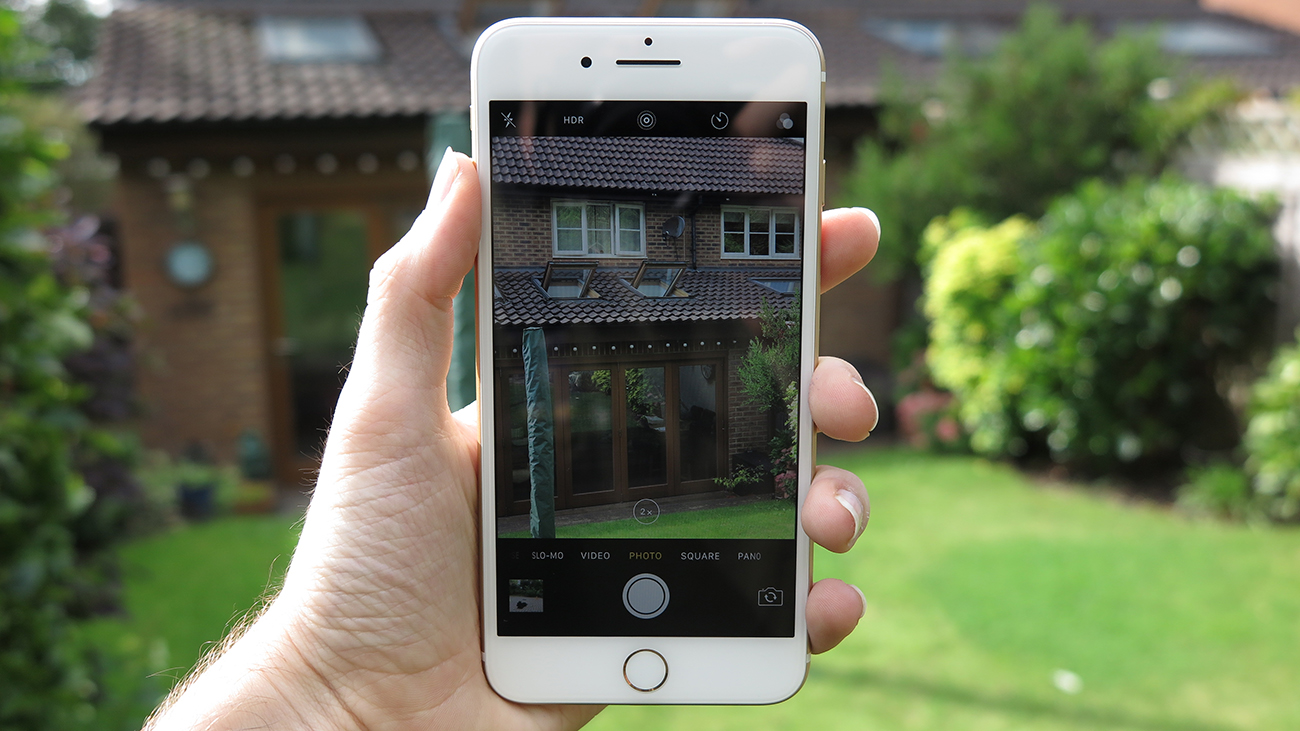
When it's really dark, you can make use of the True Tone flash, which adds warmth to the image rather than turning you into a pallid spectre.
Apple hasn't made a massive leap in camera quality, but the key improvements are noticeable. The iPhone's image processor always tends to keep colours neutral, rather than oversaturating them like most other smartphones do. As a result, they're slightly less impressive but ultimately more realistic. It's personal taste which you prefer.
Oh, and the front-facing camera has been upgraded as well, the selfie cam now features 7-megapixels. Looks fine to us, and doesn't do any of that silly 'beauty mode' nonsense.
Here's a massive gallery of iPhone 7 Plus camera samples, make sure you check them out
Verdict
The iPhone 7 Plus probably isn't the smartphone you were waiting for, but it is the phone we were expecting. Don't be put off by the unchanged design, we think it's still the most attractive smartphone on the market, as well as being the easiest to use.
Your expensive smartphone will now survive a splash, and the battery can stand up to a whole day's use. Pair that with the faster-than-light A10 Fusion processor, dual camera, and more storage, and you've got a smartphone worthy of the new number in its name.
Of course, it's not perfect. The screen resolution lags behind its competitors, and despite having a smaller screen than the Note 7, overall dimensions are larger.
If you're looking for a new iPhone, you should buy the iPhone 7 Plus.
Specs
Dimensions: 158.2 x 77.9 x 7.3 mm
Display: 5.5 inches, 1080 x 1920 pixels
Processor: Apple A10 Fusion / 2GB RAM
Storage: 32 / 128 / 256GB
Battery: 2900 mAh
Camera: Dual 12MP sensor, f/1.8 and f/2.8, OIS, quad-LED (dual tone) flash
Liked this?
- Get kitted out with the best iPhone 7 cases
- These are the best smartphones in 2016
- iPhone 7 Plus vs the Samsung Note 7 vs the OnePlus 3, which is better?
- There's also the Apple Watch Series 2 to check out!
- What's the difference between the iPhone 7 and iPhone 6S?
- iPhone 7 DEALS!
- Here's everything new in iOS 10
Sign up to the T3 newsletter for smarter living straight to your inbox
Get all the latest news, reviews, deals and buying guides on gorgeous tech, home and active products from the T3 experts

As the Style and Travel Editor at T3, Spencer covers everything from clothes to cars and watches to hotels. Everything that's cool, stylish, and interesting, basically. He's been a part of T3 for over seven years, and in that time covered every industry event known to man, from CES and MWC to the Geneva Motorshow and Baselworld. When he's driving up and down the country in search of the greatest driving roads, he can be found messing around on an electric scooter, playing with luxury watches, or testing the latest fragrances.
-
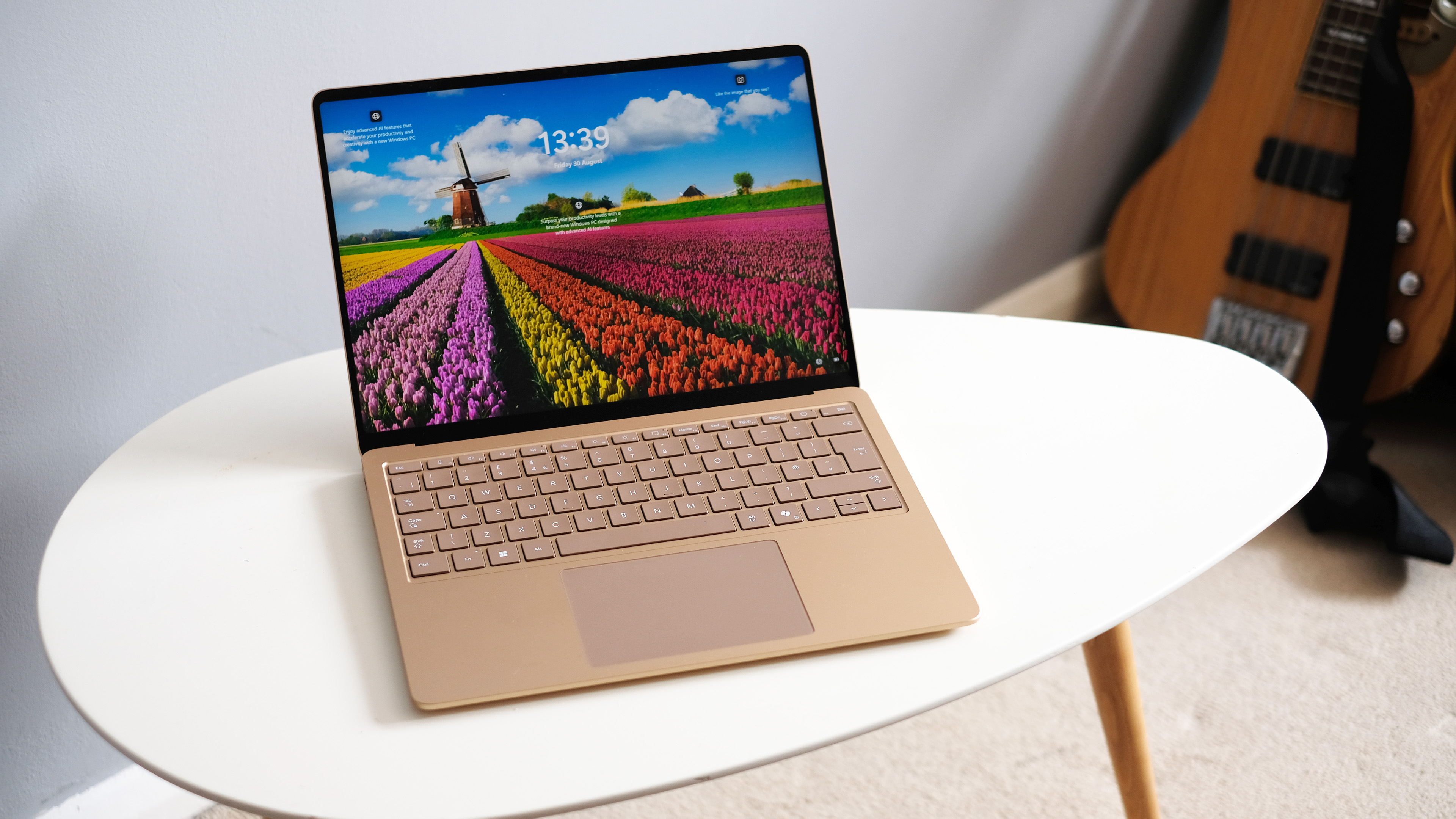 I tried a Snapdragon feature that's a game-changer for Netflix, Amazon and more
I tried a Snapdragon feature that's a game-changer for Netflix, Amazon and moreMoises Live can isolate and enhance audio in real-time using the Elite X's NPU
By Mike Lowe Published
-
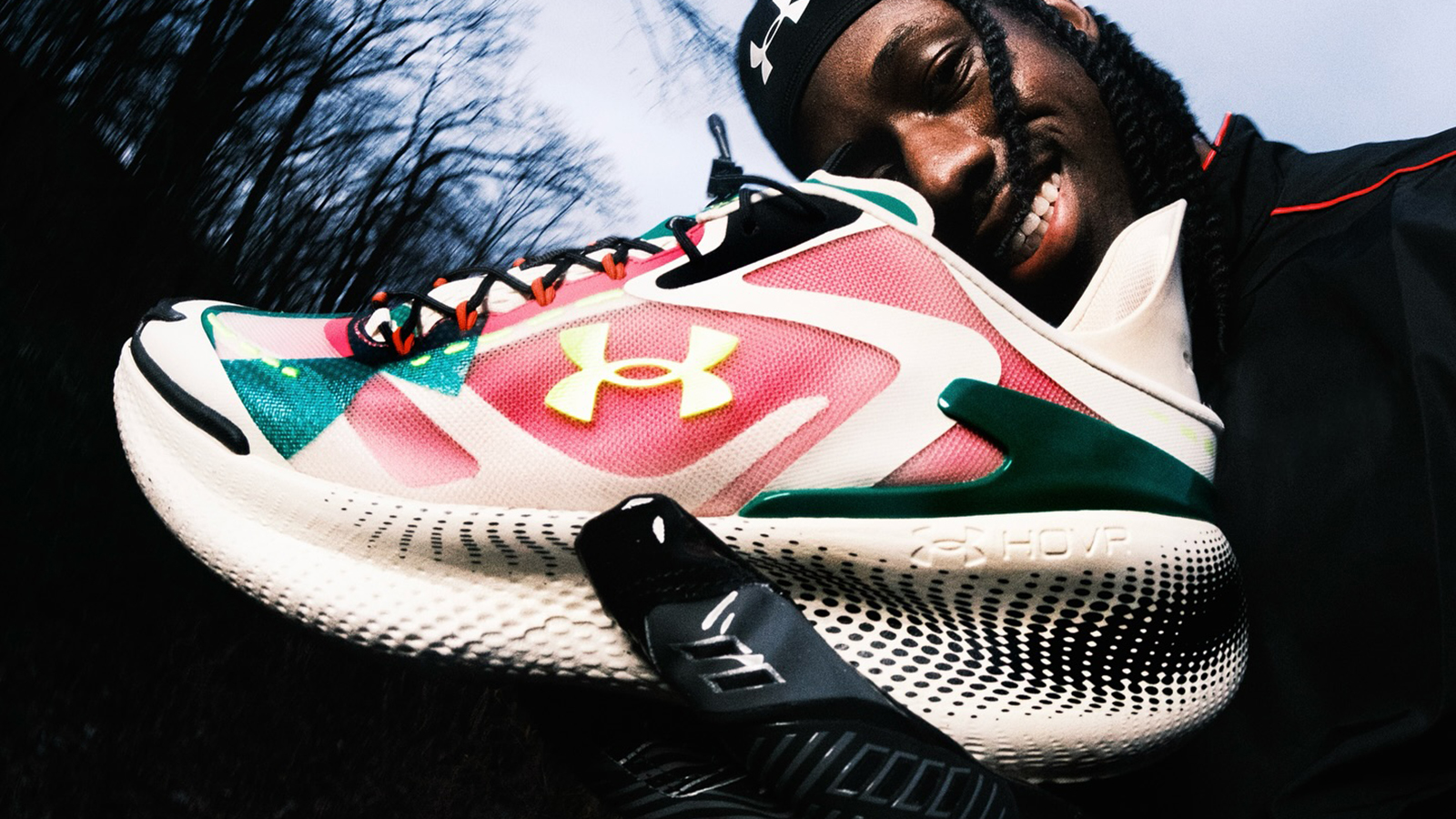 Under Armour's new sneaker doesn't play by the old rules
Under Armour's new sneaker doesn't play by the old rulesIf this is the future of the brand, it's off to a running start
By Matt Kollat Published
-
 YETI just made bowls cool – literally. And also figuratively.
YETI just made bowls cool – literally. And also figuratively.New YETI design, same bear-proof energy
By Matt Kollat Published